In the field of medical billing and coding, there are various certifications that professionals can obtain to enhance their knowledge and credibility. These certifications validate the expertise and competence of individuals in accurately translating medical procedures, diagnoses, and services into codes for billing purposes. By acquiring these certifications, medical billing and coding professionals can demonstrate their commitment to quality and accuracy in their work, ensuring optimal reimbursement for healthcare providers and efficient management of patient records. This article explores the different medical billing and coding certifications available, shedding light on their significance and requirements.
Certified Professional Coder (CPC)
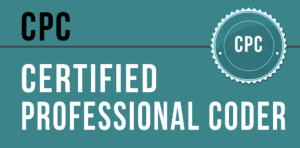
Overview
The Certified Professional Coder (CPC) certification is offered by the American Academy of Professional Coders (AAPC). This certification is highly recognized in the field of medical billing and coding and signifies that you have achieved a high level of proficiency in coding medical diagnoses and procedures using the Current Procedural Terminology (CPT) and International Classification of Diseases (ICD) coding systems. The CPC certification is valuable for individuals who wish to work as professional coders in a wide range of healthcare settings.
Requirements
To become a Certified Professional Coder (CPC), you need to meet certain requirements set by the AAPC. These requirements include a high school diploma or equivalent, a strong understanding of medical terminology and anatomy, and a good grasp of coding guidelines and regulations. Additionally, you must also have at least two years of coding experience or complete an AAPC-approved coding program.
Exam
To obtain the CPC certification, you must pass the CPC exam. This exam consists of questions related to medical coding principles, CPT and ICD coding guidelines, and healthcare regulations. The exam is divided into two parts, with the first part focusing on multiple-choice questions and the second part testing your skills in medical coding. It is essential to thoroughly prepare for the exam by studying coding guidelines and practicing coding scenarios.
Job Prospects
Having a CPC certification opens up a wide range of job opportunities in the field of medical billing and coding. Graduates with this certification can find employment in hospitals, clinics, private practices, insurance companies, and government organizations. With the increasing emphasis on accurate coding and proper reimbursement in healthcare, the demand for CPC-certified professionals is expected to grow.
Salary
The salary for CPC-certified professionals can vary based on factors such as experience, location, and job role. On average, CPC-certified coders earn a competitive salary that reflects their expertise and knowledge in medical coding. According to the AAPC’s Salary Survey, the average annual salary for certified professional coders is around $55,000. However, it is important to note that salaries can range from $40,000 to over $70,000, depending on various factors.
Certified Coding Specialist (CCS)
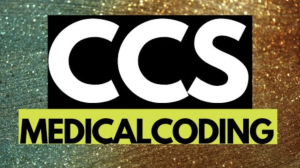
Overview
The Certified Coding Specialist (CCS) certification is offered by the American Health Information Management Association (AHIMA). This certification is designed for individuals who want to specialize in hospital coding and gain a comprehensive understanding of coding systems, medical terminology, and healthcare reimbursement methodologies. CCS-certified professionals play a crucial role in ensuring accurate coding and proper billing practices for inpatient hospital services.
Requirements
To become a Certified Coding Specialist (CCS), you need to fulfill certain requirements established by AHIMA. These requirements include a high school diploma or equivalent, completion of a coding education program, and a good understanding of medical terminology, anatomy, and healthcare regulations. Additionally, you must also have at least two years of coding experience in a hospital setting or complete an AHIMA-approved coding program.
Exam
To obtain the CCS certification, you must pass the CCS exam. This exam assesses your proficiency in coding medical diagnoses and procedures in an inpatient hospital setting. The exam is divided into multiple-choice questions and medical scenario-based questions, which test your coding knowledge and decision-making skills. It is essential to study coding guidelines and practice coding scenarios to prepare effectively for the exam.
Job Prospects
Being a CCS-certified professional opens up various job opportunities in hospital coding and healthcare information management. CCS-certified individuals can work in hospitals, healthcare consulting firms, government agencies, and other healthcare organizations. The demand for CCS-certified professionals is expected to grow as the healthcare industry continues to rely on accurate coding and billing practices for optimal financial reimbursement.
Salary
The salary for CCS-certified professionals can vary based on factors such as experience, location, and job role. On average, CCS-certified coders earn a competitive salary that reflects their specialized skills in inpatient coding. According to the AHIMA’s salary survey, the average annual salary for CCS-certified professionals is around $70,000. However, salaries can range from $50,000 to over $90,000, depending on various factors.
Certified Professional Biller (CPB)

Overview
The Certified Professional Biller (CPB) certification is offered by the American Academy of Professional Coders (AAPC). This certification is specifically designed for individuals who want to specialize in medical billing. CPB-certified professionals are skilled in various aspects of medical billing, including claim submission, payment processing, reimbursement methodologies, and insurance-related regulations.
Requirements
To become a Certified Professional Biller (CPB), you need to meet certain requirements set by the AAPC. These requirements include a high school diploma or equivalent, a good understanding of medical terminology and billing processes, and knowledge of insurance regulations and coding. Additionally, you must also have at least two years of experience working in medical billing or complete an AAPC-approved billing program.
Exam
To obtain the CPB certification, you must pass the CPB exam. This exam assesses your knowledge and skills in medical billing processes, insurance coverage, reimbursement methodologies, and compliance regulations. The exam consists of multiple-choice questions and covers various topics related to medical billing. It is essential to study billing guidelines and practice billing scenarios to prepare effectively for the exam.
Job Prospects
Having a CPB certification can open up a wide range of job opportunities in medical billing. CPB-certified professionals can work in hospitals, clinics, billing companies, insurance companies, and other healthcare organizations. With the increasing complexity of medical billing practices and insurance regulations, the demand for CPB-certified professionals is expected to grow.
Salary
The salary for CPB-certified professionals can vary based on factors such as experience, location, and job role. On average, CPB-certified billers earn a competitive salary that reflects their expertise in medical billing. According to the AAPC’s Salary Survey, the average annual salary for certified professional billers is around $45,000. However, salaries can range from $35,000 to over $55,000, depending on various factors.
Certified Coding Associate (CCA)
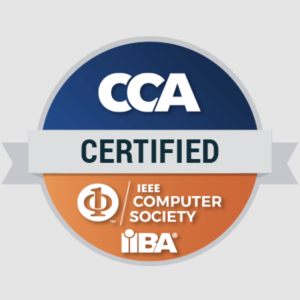
Overview
The Certified Coding Associate (CCA) certification is offered by the American Health Information Management Association (AHIMA). This certification is suitable for entry-level professionals who want to start their career in medical coding. The CCA certification validates the individual’s basic knowledge and skills in accurate medical coding using the ICD coding system.
Requirements
To become a Certified Coding Associate (CCA), you need to fulfill certain requirements established by AHIMA. These requirements include a high school diploma or equivalent and completion of an AHIMA-approved coding education program. It is recommended to have a good understanding of medical terminology and anatomy before pursuing this certification.
Exam
To obtain the CCA certification, you must pass the CCA exam. This exam assesses your knowledge and skills in medical coding and includes multiple-choice questions related to the coding guidelines and healthcare regulations. The CCA certification is a stepping stone for individuals who want to pursue higher-level coding certifications.
Job Prospects
Having a CCA certification can provide you with entry-level job opportunities in medical coding. CCA-certified professionals can work in various healthcare settings, including hospitals, clinics, and outpatient facilities. While the scope of practice for CCA-certified individuals may be more limited compared to higher-level certifications, it serves as a strong foundation for further growth in the field.
Salary
The salary for CCA-certified professionals can vary based on factors such as experience, location, and job role. On average, CCA-certified coders earn a competitive starting salary that reflects their entry-level skills in medical coding. According to the AHIMA’s salary survey, the average annual salary for CCA-certified professionals is around $42,000. However, salaries can range from $30,000 to over $50,000, depending on various factors.
Certified Professional Compliance Officer (CPCO)
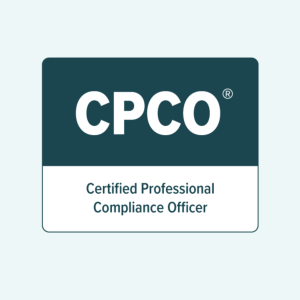
Overview
The Certified Professional Compliance Officer (CPCO) certification is offered by the AAPC. This certification is designed for professionals who want to specialize in healthcare compliance and ensure that healthcare organizations adhere to legal and ethical standards. CPCO-certified professionals play a vital role in preventing fraud, promoting compliance, and mitigating risks within the healthcare industry.
Requirements
To become a Certified Professional Compliance Officer (CPCO), you need to meet certain requirements set by the AAPC. These requirements include a high school diploma or equivalent and at least two years of experience working in a compliance-related role in healthcare. Additionally, you must also have a good understanding of healthcare laws, regulations, and industry standards.
Exam
To obtain the CPCO certification, you must pass the CPCO exam. This exam assesses your knowledge and skills in healthcare compliance, fraud prevention, and risk management. The exam consists of multiple-choice questions and covers various topics related to healthcare compliance. It is essential to study compliance regulations and practice scenario-based questions to prepare effectively for the exam.
Job Prospects
Having a CPCO certification can provide you with numerous job opportunities in healthcare compliance. CPCO-certified professionals can work in hospitals, healthcare consulting firms, government agencies, insurance companies, and other healthcare organizations. With the increasing focus on compliance and risk management in healthcare, the demand for CPCO-certified professionals is expected to grow.
Salary
The salary for CPCO-certified professionals can vary based on factors such as experience, location, and job role. On average, CPCO-certified compliance officers earn a competitive salary that reflects their specialized skills in healthcare compliance. According to the AAPC’s Salary Survey, the average annual salary for CPCO-certified professionals is around $70,000. However, salaries can range from $50,000 to over $90,000, depending on various factors.
Certified Outpatient Coder (COC)
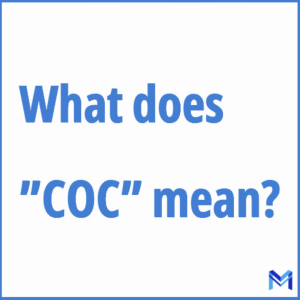
Overview
The Certified Outpatient Coder (COC) certification is offered by the AAPC. This certification is suitable for individuals who want to specialize in outpatient coding and have a good understanding of outpatient procedures and services. COC-certified professionals play a crucial role in accurately coding and documenting outpatient medical records for reimbursement purposes.
Requirements
To become a Certified Outpatient Coder (COC), you need to meet certain requirements set by the AAPC. These requirements include a high school diploma or equivalent and a good understanding of medical terminology, anatomy, and outpatient-specific coding guidelines. Additionally, you must also have at least two years of coding experience in an outpatient setting or complete an AAPC-approved outpatient coding program.
Exam
To obtain the COC certification, you must pass the COC exam. This exam assesses your knowledge and skills in outpatient coding, CPT coding guidelines, and compliance regulations. The exam consists of multiple-choice questions and requires a thorough understanding of outpatient coding scenarios. It is essential to study coding guidelines and practice outpatient coding scenarios to prepare effectively for the exam.
Job Prospects
Having a COC certification can provide you with various job opportunities in outpatient coding. COC-certified professionals can work in outpatient clinics, ambulatory surgical centers, rehabilitation facilities, and other outpatient healthcare settings. The demand for COC-certified coders is expected to grow as outpatient procedures continue to increase.
Salary
The salary for COC-certified professionals can vary based on factors such as experience, location, and job role. On average, COC-certified coders earn a competitive salary that reflects their specialized skills in outpatient coding. According to the AAPC’s Salary Survey, the average annual salary for certified outpatient coders is around $57,000. However, salaries can range from $45,000 to over $70,000, depending on various factors.
Certified Inpatient Coder (CIC)
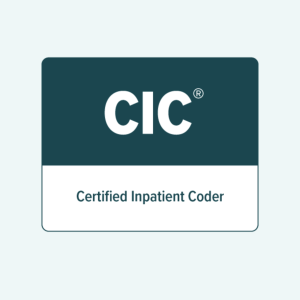
Overview
The Certified Inpatient Coder (CIC) certification is offered by the AAPC. This certification is suitable for individuals who want to specialize in inpatient coding and have a deep understanding of inpatient procedures, diagnoses, and coding guidelines. CIC-certified professionals play a crucial role in accurately coding and documenting inpatient medical records for reimbursement purposes.
Requirements
To become a Certified Inpatient Coder (CIC), you need to meet certain requirements set by the AAPC. These requirements include a high school diploma or equivalent and a good understanding of medical terminology, anatomy, and inpatient-specific coding guidelines. Additionally, you must also have at least two years of coding experience in an inpatient setting or complete an AAPC-approved inpatient coding program.
Exam
To obtain the CIC certification, you must pass the CIC exam. This exam assesses your knowledge and skills in inpatient coding, ICD coding guidelines, and compliance regulations. The exam consists of multiple-choice questions and requires a thorough understanding of inpatient coding scenarios. It is essential to study coding guidelines and practice inpatient coding scenarios to prepare effectively for the exam.
Job Prospects
Having a CIC certification can provide you with various job opportunities in inpatient coding. CIC-certified professionals can work in hospitals, rehabilitation centers, long-term care facilities, and other inpatient healthcare settings. The demand for CIC-certified coders is expected to grow as the complexity of inpatient coding and billing increases.
Salary
The salary for CIC-certified professionals can vary based on factors such as experience, location, and job role. On average, CIC-certified coders earn a competitive salary that reflects their specialized skills in inpatient coding. According to the AAPC’s Salary Survey, the average annual salary for certified inpatient coders is around $62,000. However, salaries can range from $50,000 to over $75,000, depending on various factors.
Certified Professional Medical Auditor (CPMA)
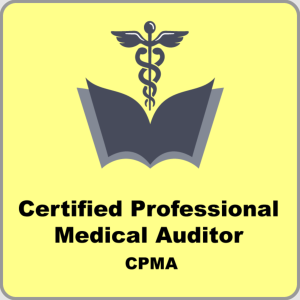
Overview
The Certified Professional Medical Auditor (CPMA) certification is offered by the AAPC. This certification is suitable for professionals who want to specialize in medical auditing and ensure compliance with coding and billing guidelines. CPMA-certified professionals play a crucial role in conducting audits, identifying errors or discrepancies, and making recommendations for improved coding and billing practices.
Requirements
To become a Certified Professional Medical Auditor (CPMA), you need to meet certain requirements set by the AAPC. These requirements include a high school diploma or equivalent and a strong understanding of medical coding, billing, and compliance regulations. Additionally, you must also have at least two years of experience in medical auditing or complete an AAPC-approved auditing program.
Exam
To obtain the CPMA certification, you must pass the CPMA exam. This exam assesses your knowledge and skills in medical auditing, compliance regulations, and healthcare documentation. The exam consists of multiple-choice questions and requires a thorough understanding of auditing principles and practices. It is essential to study auditing guidelines and practice auditing scenarios to prepare effectively for the exam.
Job Prospects
Having a CPMA certification can provide you with various job opportunities in medical auditing. CPMA-certified professionals can work in hospitals, insurance companies, consulting firms, government agencies, and other healthcare organizations. The demand for CPMA-certified auditors is expected to grow as the focus on auditing and compliance in healthcare continues to increase.
Salary
The salary for CPMA-certified professionals can vary based on factors such as experience, location, and job role. On average, CPMA-certified auditors earn a competitive salary that reflects their specialized skills in medical auditing. According to the AAPC’s Salary Survey, the average annual salary for certified medical auditors is around $70,000. However, salaries can range from $50,000 to over $90,000, depending on various factors.
Certified Physician Practice Manager (CPPM)
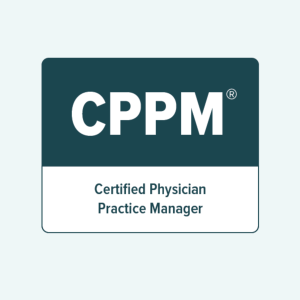
Overview
The Certified Physician Practice Manager (CPPM) certification is offered by the AAPC. This certification is suitable for professionals who want to specialize in managing the operations of physician practices. CPPM-certified professionals play a crucial role in ensuring the effective and efficient management of medical offices, including financial management, human resources, and compliance with healthcare regulations.
Requirements
To become a Certified Physician Practice Manager (CPPM), you need to meet certain requirements set by the AAPC. These requirements include a high school diploma or equivalent and a good understanding of medical practice management principles, healthcare regulations, and coding and billing guidelines. Additionally, you must also have at least two years of experience in healthcare management or complete an AAPC-approved practice management program.
Exam
To obtain the CPPM certification, you must pass the CPPM exam. This exam assesses your knowledge and skills in medical practice management, financial management, human resources, and compliance regulations. The exam consists of multiple-choice questions and requires a thorough understanding of practice management principles. It is essential to study management guidelines and practice scenario-based questions to prepare effectively for the exam.
Job Prospects
Having a CPPM certification can provide you with various job opportunities in physician practice management. CPPM-certified professionals can work in private physician practices, healthcare consulting firms, hospitals, and other healthcare organizations. With the increasing complexity of healthcare regulations and financial management in physician practices, the demand for CPPM-certified professionals is expected to grow.
Salary
The salary for CPPM-certified professionals can vary based on factors such as experience, location, and job role. On average, CPPM-certified practice managers earn a competitive salary that reflects their specialized skills in medical practice management. According to the AAPC’s Salary Survey, the average annual salary for certified physician practice managers is around $80,000. However, salaries can range from $60,000 to over $100,000, depending on various factors.
Certified Risk Adjustment Coder (CRC)
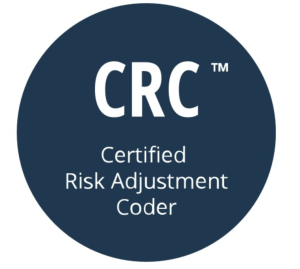
Overview
The Certified Risk Adjustment Coder (CRC) certification is offered by the AAPC. This certification is suitable for professionals who want to specialize in risk adjustment coding and ensure accurate reimbursement for Medicare Advantage and other risk-based payment models. CRC-certified professionals play a crucial role in identifying and documenting chronic conditions and other factors that affect patient risk scores.
Requirements
To become a Certified Risk Adjustment Coder (CRC), you need to meet certain requirements set by the AAPC. These requirements include a high school diploma or equivalent and a good understanding of risk adjustment coding guidelines, healthcare regulations, and documentation practices. Additionally, you must also have at least two years of coding experience in risk adjustment or complete an AAPC-approved risk adjustment coding program.
Exam
To obtain the CRC certification, you must pass the CRC exam. This exam assesses your knowledge and skills in risk adjustment coding principles, reimbursement methodologies, and compliance regulations. The exam consists of multiple-choice questions and requires a thorough understanding of risk adjustment coding scenarios. It is essential to study coding guidelines and practice risk adjustment coding scenarios to prepare effectively for the exam.
Job Prospects
Having a CRC certification can provide you with various job opportunities in risk adjustment coding. CRC-certified professionals can work in healthcare organizations that participate in Medicare Advantage and other risk-based payment models. With the increasing emphasis on accurate documentation and coding to reflect the severity of patient conditions, the demand for CRC-certified professionals is expected to grow.
Salary
The salary for CRC-certified professionals can vary based on factors such as experience, location, and job role. On average, CRC-certified coders earn a competitive salary that reflects their specialized skills in risk adjustment coding. According to the AAPC’s Salary Survey, the average annual salary for certified risk adjustment coders is around $60,000. However, salaries can range from $45,000 to over $75,000, depending on various factors.
In conclusion, there are several certifications available for individuals looking to enter the field of medical billing and coding. Each certification focuses on different aspects of coding, billing, compliance, or practice management. The Certified Professional Coder (CPC) and Certified Coding Specialist (CCS) certifications are well-recognized in the industry and offer opportunities for specialization in various healthcare settings. The Certified Professional Biller (CPB) certification is ideal for individuals looking to specialize in medical billing, while the Certified Coding Associate (CCA) certification serves as an entry-level certification for coding professionals. The Certified Professional Compliance Officer (CPCO) certification is suitable for professionals involved in healthcare compliance, and the Certified Outpatient Coder (COC) and Certified Inpatient Coder (CIC) certifications focus on outpatient and inpatient coding, respectively. The Certified Professional Medical Auditor (CPMA) certification is for those interested in medical auditing, while the Certified Physician Practice Manager (CPPM) certification is for individuals aspiring to manage physician practices. Lastly, the Certified Risk Adjustment Coder (CRC) certification is designed for professionals involved in risk adjustment coding for Medicare Advantage and other risk-based payment models. These certifications provide individuals with the knowledge, skills, and credentials necessary to succeed in the dynamic field of medical billing and coding.
